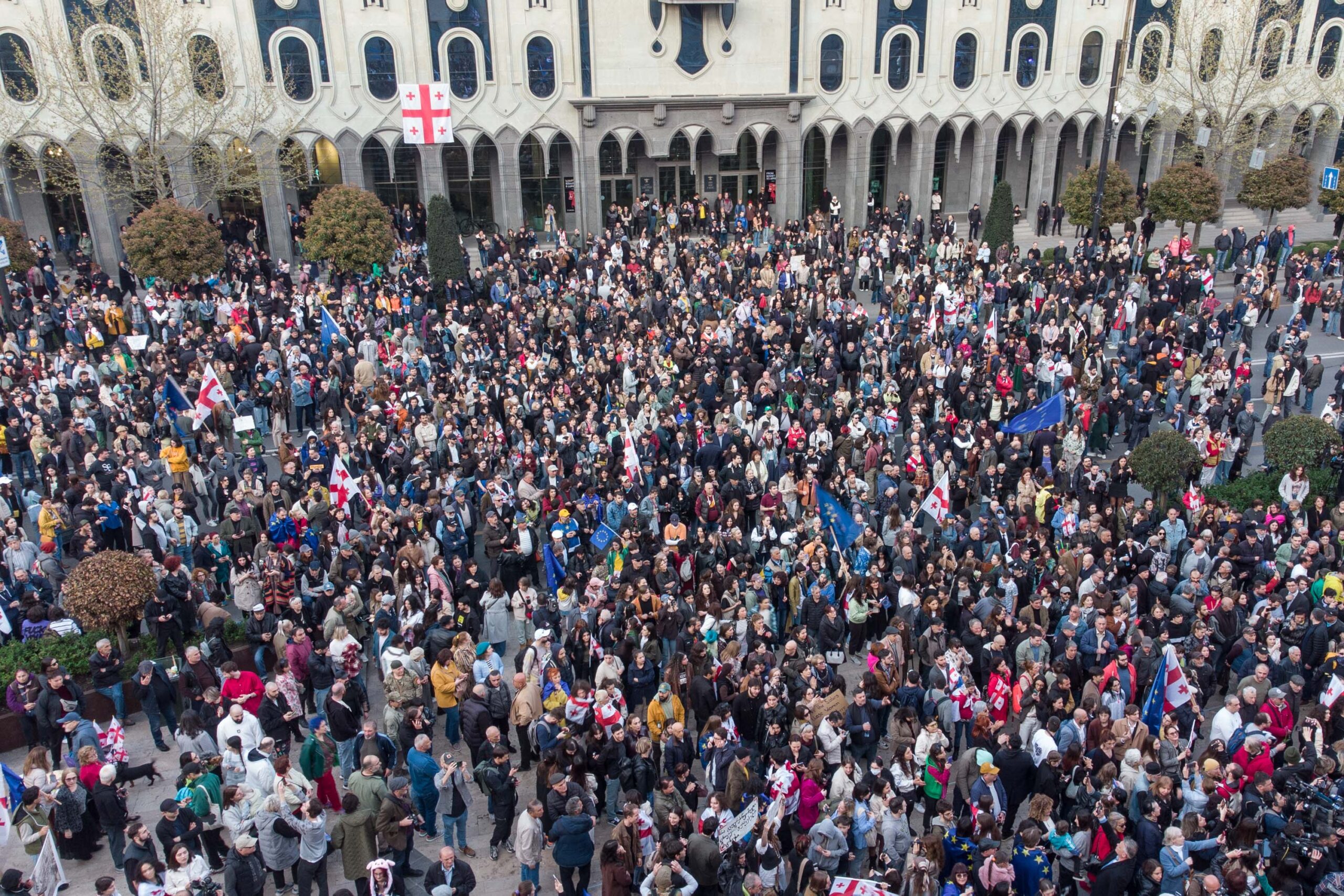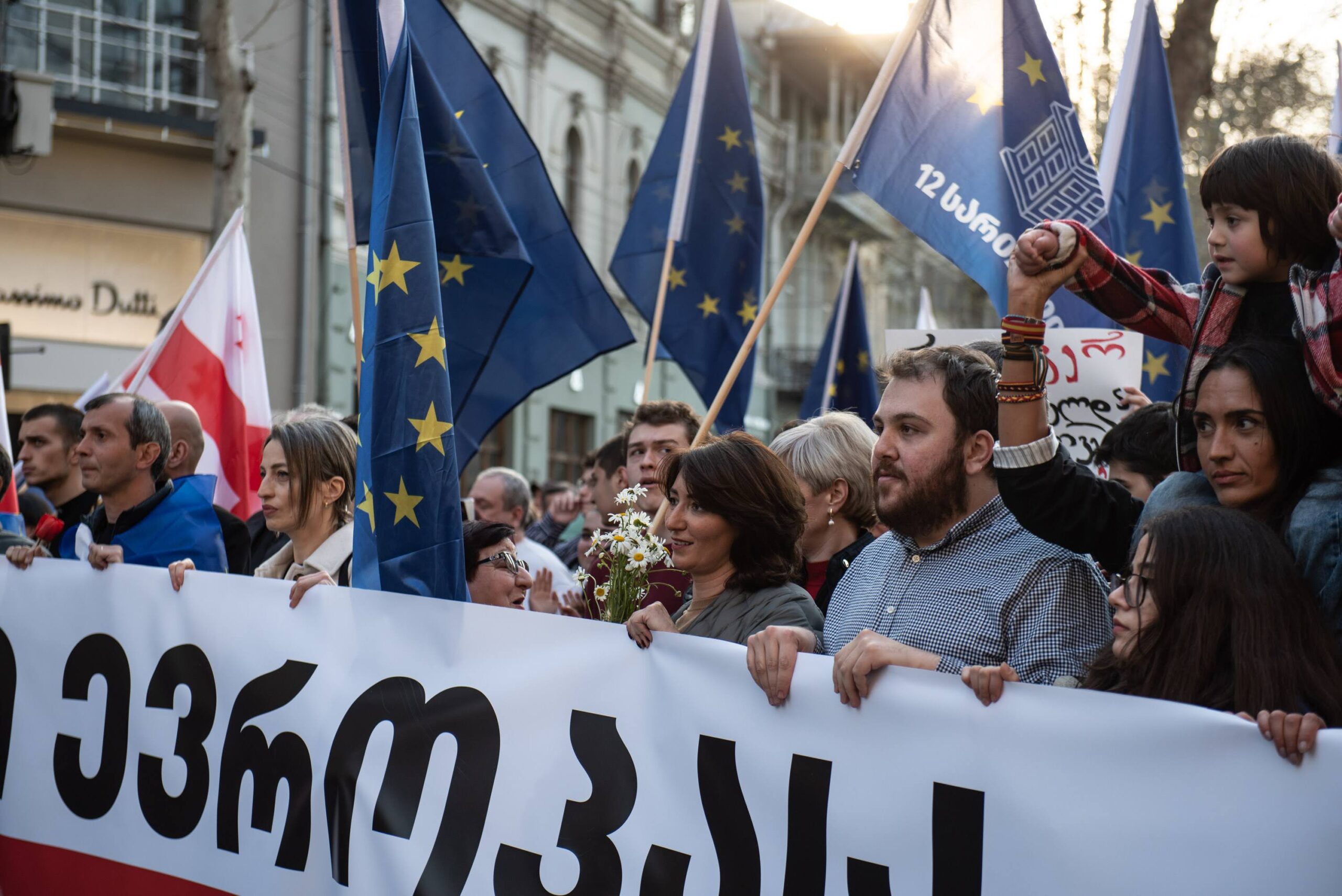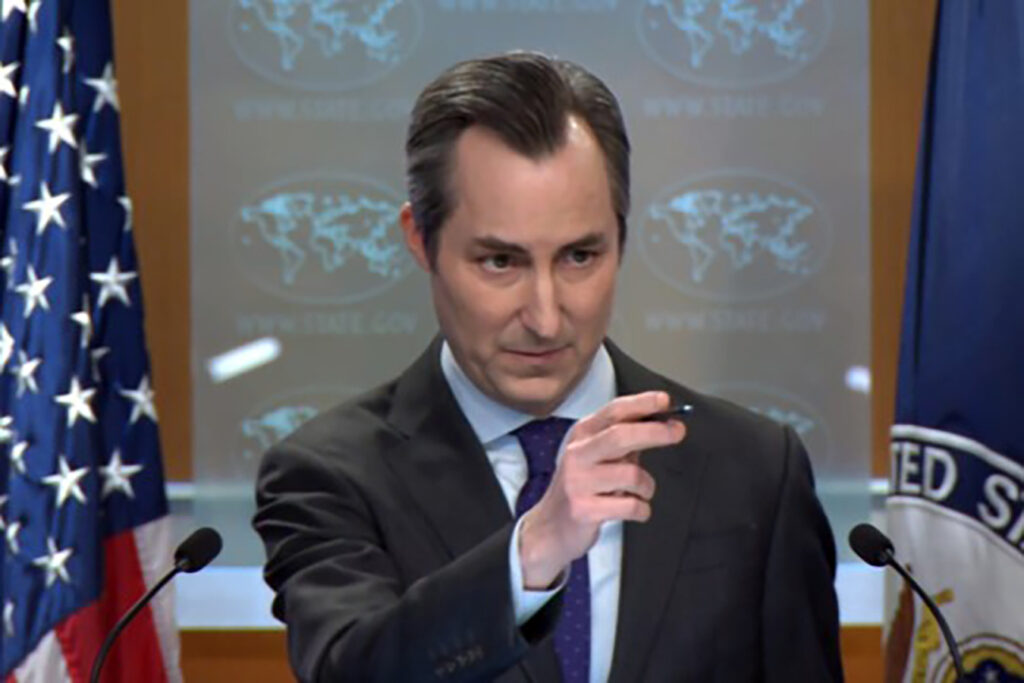US State Department spokesperson Matthew Miller has told reporters to ‘stay tuned’ regarding possible sanctions on Georgian officials responsible for reintroducing the foreign agent bill.
Answering journalists’ questions on Monday, Miller stated that adopting the foreign agent law ‘would derail Georgia from its European path’.
‘We are concerned that the legislation would impede independent media organisations working to provide access for Georgian citizens to high-quality information’, he said.
Miller was asked why the US had not repeated a threat made last year in which they ‘were clear that if any MP votes for [the foreign agent bill], they would be sanctioned’.
‘Right now we are making clear that we are concerned with the — this draft legislation’, Miller responded. ‘With respect to what we might do if it moves forward, stay tuned’, he said.
Georgian Dream dropped the draft law on foreign agents in March 2023 amid mass protests. On 3 April, the ruling party announced they were bringing the draft law back and would adopt it by the end of the spring session — in June.
[Read more: Georgian Government to bring back aborted foreign agent law]
On Tuesday, several thousand people marched to the Georgian Parliament in Tbilisi to protest the bill.

Georgian Dream ‘do not expect’ sanctions
Georgian officials have stated they do not expect sanctions from the West over the foreign agent bill, despite having been roundly condemned for pursuing it.
On Tuesday, Mamuka Mdinaradze, Georgian Dream’s parliamentary leader, dismissed talk of sanctions.
‘I really don’t expect any sanction because it is impossible to impose a sanction from a country with a stricter law in this direction’, he said. The ruling party has insisted that their legislation is based on US and European laws, and not the foreign agent law used to crush civil society and independent media in Russia.

The mayor of Tbilisi, Kakha Kaladze, said on Wednesday that talk sanctions were ‘incomprehensible’, a ‘threat’ and a form of ‘blackmail’.
Last year, the US imposed sanctions on three current and one former judge alleged to be members of a ruling-party-associated ‘clan’ in Georgia’s judicial system. The US accused the four of ‘involvement in significant corruption’ and ‘undermining the rule of law’.
The sanctions have been harshly criticised by Georgian officials, as well as the judges themselves. Last week, Mdinaradze called on US Ambassador Robin Dunnigan to lift the sanctions.
Condemnation continues
Since Georgian Dream announced they were reviving the bill, domestic and international condemnation has continued to come in.
[Read more: Georgia’s foreign agents bill faces international condemnation]
On Tuesday, the UN’s Georgia office stated the law ‘would impede the work of civil society and media and the essential contributions they make to Georgian democracy and society as a whole’.
They referred to last year’s analytical assessment by the OSCE/ODIHR, which stated the bill did not comply with the spirit of Georgia’s international obligations.
‘Noting Georgia’s current membership of the UN Human Rights Council, we urge the Parliament of Georgia to withdraw this draft law and conduct broad, inclusive, and meaningful consultations with a wide range of stakeholders on relations between the state and civil society’, the statement read.
Mamuka Mdinaradze hit back at the UN, claiming they ‘did not present an argument why civil society in Georgia will be threatened by what does not threaten civil society in Europe’.
‘There is no official structure or person in the world, including our friendly countries, whose position we share without argument’, he said.
‘If someone tells us why something that is not harmful in Europe, the USA, Israel, etc., is disturbing and damaging, including for the civil sector and democracy, then we will think’.
Georgian President Salome Zourabichvili stated on Tuesday that ‘the fact that some dared to introduce the Russian law [foreign agent law] again on 8 April is the biggest sign of their defeat’.
In Georgia, 9 April is a public holiday to mark the 1989 massacre of protesters by Soviet troops.
‘Today, tomorrow, and the day after that — nobody who enters Georgia with a Russian sign, Russian flag, and Russian enslavement will ever win’, Zourabichvili said.
Georgia’s foreign agent law would label any civil society or media organisation that received at least 20% of its funding from outside Georgia ‘organisations carrying out the interests of a foreign power’. Such organisations would be subject to ‘monitoring’ by the Ministry of Justice every six months, which lawyers have warned could include forcing them to hand over internal communications and confidential sources. Organisations that do not comply would be subject to large fines.




 10 April 2024
10 April 2024



